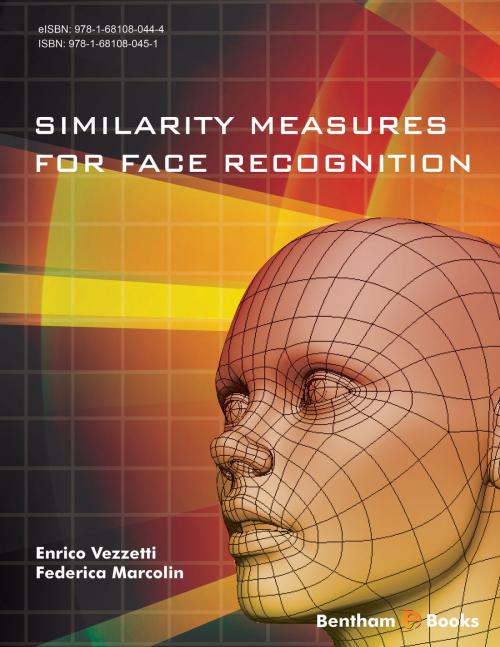Similarity Measures for Face Recognition
Nonfiction, Computers, Advanced Computing, Engineering, Computer Vision| Author: | Enrico Vezzetti, Federica Marcolin | ISBN: | 9781681080444 |
| Publisher: | Bentham Science Publishers | Publication: | April 27, 2015 |
| Imprint: | Bentham eBook | Language: | English |
| Author: | Enrico Vezzetti, Federica Marcolin |
| ISBN: | 9781681080444 |
| Publisher: | Bentham Science Publishers |
| Publication: | April 27, 2015 |
| Imprint: | Bentham eBook |
| Language: | English |
Face recognition has several applications, including security, such as (authentication and identification of device users and criminal suspects), and in medicine (corrective surgery and diagnosis). Facial recognition programs rely on algorithms that can compare and compute the similarity between two sets of images. This eBook explains some of the similarity measures used in facial recognition systems in a single volume. Readers will learn about various measures including Minkowski distances, Mahalanobis distances, Hansdorff distances, cosine-based distances, among other methods. The book also summarizes errors that may occur in face recognition methods. Computer scientists "facing face" and looking to select and test different methods of computing similarities will benefit from this book. The book is also useful tool for students undertaking computer vision courses. - See more at: http://www.eurekaselect.com/130654#sthash.At4fkc1J.dpuf
Face recognition has several applications, including security, such as (authentication and identification of device users and criminal suspects), and in medicine (corrective surgery and diagnosis). Facial recognition programs rely on algorithms that can compare and compute the similarity between two sets of images. This eBook explains some of the similarity measures used in facial recognition systems in a single volume. Readers will learn about various measures including Minkowski distances, Mahalanobis distances, Hansdorff distances, cosine-based distances, among other methods. The book also summarizes errors that may occur in face recognition methods. Computer scientists "facing face" and looking to select and test different methods of computing similarities will benefit from this book. The book is also useful tool for students undertaking computer vision courses. - See more at: http://www.eurekaselect.com/130654#sthash.At4fkc1J.dpuf















